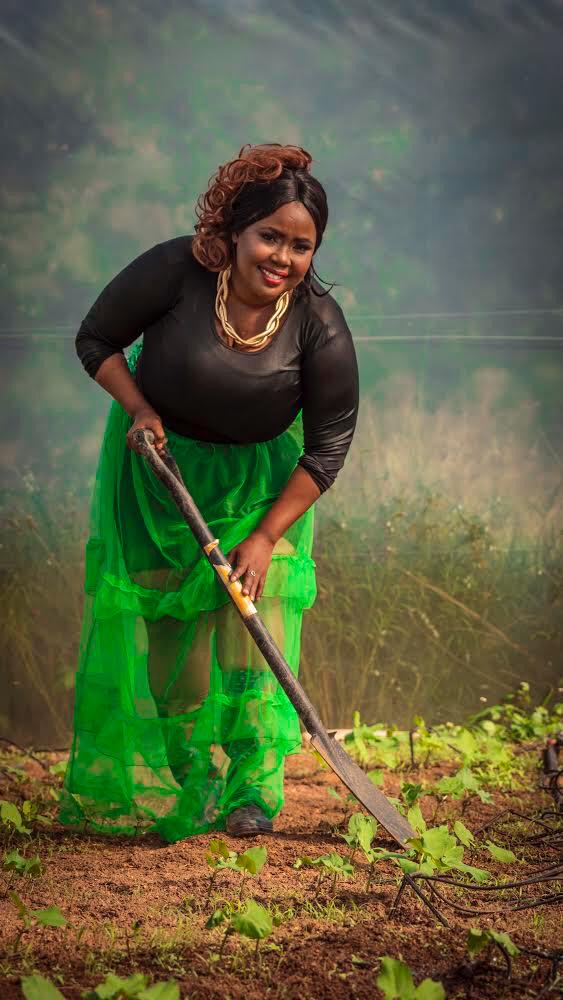Ntokozo Motloung comes from a strong line of women in agriculture and she is harnessing this family passion to tackle food security and job creation in South Africa, from the ground up.
The daughter of an agricultural teacher and the granddaughter of a self-taught farmer, the 35-year-old is the founder and CEO of Ntozakhe Social Development, an AgriSETA-accredited training service provider offering development programmes in the agricultural sector.
“We help people access affordable and diverse food through the co-ordination and implementation of household and community food security projects, as part of the Food and Nutrition Security Policy of South Africa,” she says.
Ntozakhe Social Development’s other key mandate is to drive job creation in the agricultural sector through training programmes that aim to make aspiring farmers not merely sustainable but profitable. “We focus on biological soil management with pasture management and organic production, ensuring quality and ultimately gross profit margins for producers,” she explains.
Increasing access to job opportunities
Growing job opportunities in the agriculture sector is crucial to South Africa’s future food security, especially as there has been a steady decrease in employment in the sector. Stats SA’s Commercial Agriculture Census of 2017, released in March 2020, found that employment in the sector dropped by 1,6% between 2007 and 2018, from 769 594 to 757 628.
Ntokozo’s company has been boosting these figures since she founded it in 2014. A single training project on her small farm in uMzinyathi, KwaZulu-Natal, takes in around 200 students, who undertake a programme that consists of 30% theory and 70% practical application. “We have a 60% success rate with our mentorship programme, with most of the students going on to start their own agri-businesses.”
Bolster your farm’s business resilience.
Ntozakhe Social Development’s founding ethos is also to be a responsible business that supports the community. “As such, we partner with numerous local non-profit organisations.”
As a young black woman in a sector dominated by men, Ntokozo is determined to plough more diversity into the sector. This is evident in her staff complement of ten full-time and ten part-time employees, equally weighted between male and female, all of whom are black and four of whom are disabled. “I’ve always wanted to show people that a woman can run a successful business, as I strongly believe whatever a man can do a woman can do too,” she says.
Returning to grassroots level
While Ntokozo comes from a family of nature lovers and agriculture runs strong in her blood, it took her a few years to return to her roots.

The headstrong entrepreneur started her first company when she was 21 – a graphic design and digital printing business operating in KwaZulu-Natal’s Kwamashu and uMzinyathi areas – while studying towards a BSc in psychology through Unisa.
In 2009, she took a wildlife filmmaking and conservation course offered by the Natural History Unit of Africa in the Kruger National Park. “It helped me grow my skills and develop my knowledge about nature and the environment.”
With a renewed passion for all things wild and green, the idea for a new business took seed and was soon after sparked by her mother lamenting the lack of hands-on agricultural training for the youth.
“We pooled our resources, including my mother’s vast skills in the agricultural sector, to come up with a company that is fit to compete with the best in the industry. I then gathered the necessary experience via training offered at various accredited originations, including AgriSETA, Services SETA, the Small Enterprise Development Agency and KwaZulu-Natal’s Agribusiness Development Agency.”
Planning amid a pandemic
Like all small and medium enterprises, the COVID-19 pandemic has hit Ntozakhe Social Development hard. “We couldn’t meet clients and hold practical training with students,” Ntokozo explains. “We had to adapt quickly and learn to communicate via webinars. We’re just taking it step-by-step for now and waiting for things to get back to normal, whatever that may be post-pandemic.”
The young entrepreneur has been using the time during lockdown to plan her next steps. “In the long term, we have plans to take our agribusiness training model international. In the short term, we’re looking at building a laboratory on site and at a much-needed systems upgrade.”
Importantly for Ntokozo, her plans focus heavily on drawing more youth to the agricultural sector. “We’re focusing on building networks to reach more youth, mainly via social media, to get them interested in agri-business. We want to empower disadvantaged youth, particularly disabled youth, unemployed matriculants, youth at risk, girls and rural youth. We see this business as a tool for changing people’s lives for the better.” – Press release, Ntozakhe Social Development






